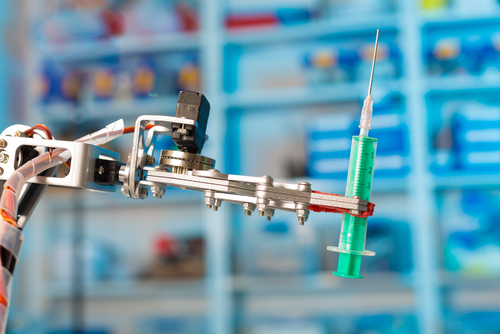
The Biomedical Advanced Research and Development Authority (BARDA) and Department of Defense penned two technology investment agreements focused on boosting domestic manufacturing last week, with Retractable Technologies, Inc. (RTI) and Becton, Dickinson and Co. (BD), respectively.
In both cases, the focus was on shoring up U.S. capacity or critical medical items: needles and syringes. The effort paired BARDA with DoD’s Joint Program Executive Office for Chemical, Biological and Nuclear Defense (JPEO-CBRND). On the private sector’s end of the deal, RTI is known as a leading manufacturer of automated retraction syringes. BD is a large global presence for medical technology in general.
The government’s goal in the arrangements is simple: it wants to ensure the availability of needles and syringes while reducing the dependence on other nations for these critical supplies. Such supply lines have been tested by the global pandemic of COVID-19 and resulted in repeated shortages throughout the crisis, especially given that routine healthcare needs have not gone away amid the surge of COVID-19 patients.
For RTI, the agreement will assist the expansion of domestic manufacturing capacity by at least 50 percent within a year. Once the company can produce at least 350 million needles and syringes per year, the U.S. government and its private industry partners will be given priority for purchasing them.
BD will also be expected to significantly expand its manufacturing capacity at its Nebraska facilities within 12 months of award. Once it can produce at least 300 million needles and syringes annually, the government’s private sector partners will gain purchasing priority for use with COVID-19 medical countermeasures.




